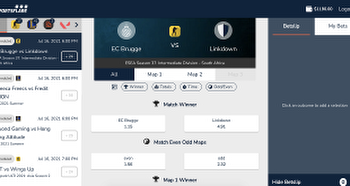British GGY totals £546.2m in March as slot revenue hits record high
The figures were compiled using data from operators representing around 80% of the online gambling market. While the Commission has now reported 13 months of data since lockdowns began, it said it was “not advisable” to compare year-on-year figures, due to “different operating circumstances”.
In the final full month of lockdown in England, online slots revenue hit a new monthly high of £202.9m, up 15.2% from February and up 1.5% from the previous high in December 2020. This came as the number of slots players also hit a record high at 3.3 million, up 10.0% from last month and 10.1% from December 2020’s record, while the number of spins exceeded 6 billion for the first time.
The average slot session length declined to 21 minutes, equalling the lowest recorded, but the number of sessions lasting an hour or more grew by 8% month-on-month to 2.7m.
Online sports betting revenue, meanwhile, was down 5.1% to £250.5m, despite the Cheltenham Festival occurring in March. The number of sports bettors surpassed six million for the first time, while the number of bets placed hit a record high of 375.2 million.
Non-slot igaming brought in £71.2m, up 10.8% from February, as the number of online casino players grew 13.0% month-on-month. Poker revenue ticked down to £9.2m.
Virtual betting increased by 17.7% from February, while esports betting grew 16.9%.
Other revenue came to £2.1m, down slightly from February.
The Commission also released a survey in order to examine the extent to which gambling habits have changed since the start of lockdown. The survey follows a previous similar survey conducted in the fourth quarter of 2020.
This survey found that more gamblers reported their gambling had decreased since the start of the first lockdown in March 2020 than increased, by 23% to 18%. However, this gap was much smaller than the 27% to 13% difference in Q4 of 2020.
3% of overall respondents said their gambling increased “a lot” under lockdown, while 12% said their play decreased “a lot”.
In addition, the survey found that those who had gambled three or more times in the month before being surveyed were more likely to report an increase in activity, with 40% reporting an increase compared to 16% who said their play decreased. This included 9% who said their gambling increased a lot.
Men, and particularly young men, were more likely to say their gambling increased.
The main reason given for increased gambling was boredom, with 47% of those who gambled more citing this. This was followed by having more spare time, mentioned by 35%. 20% said they gambled more because they had more money, 33% said they “just wanted to” and 13% said it was to substitute lost income.
The Commission again warned operators to show “extra vigilance” as lockdown eases, as some people may continue to feel isolated and vulnerable.
The Commission also addressed reports that its review into remote customer interaction – notable for its proposal of mandatory affordability checks after player reach a £100 threshold – will be brought under the wider Gambling Act review conducted by the Department for Digital Culture, Media and Sport (DCMS). However, while it said its work on the consultation continues, it did not confirm or deny whether the eventual result would be folded into the Gambling Act review.
“Our work on remote customer interaction continues,” a spokesperson said. “We continue to review the large amount of evidence we received in the 13,000 responses we received to our consultation and call for evidence.
“We will in due course be publishing an update and setting out what our next steps will be, which will focus upon addressing the risks that we currently see in our casework. In the meantime, the Commission continues to take action in relation to any breaches to the current customer interaction requirements that are identified as a result of compliance and enforcement activity.
“This is a vital area to continue to address because whilst some operators have continued to improve their customer interaction processes, our evidence shows that many online operators are not setting thresholds for action at appropriate levels. They are not taking the appropriate action or acting quickly enough when they do identify risks of potential harm.”




































